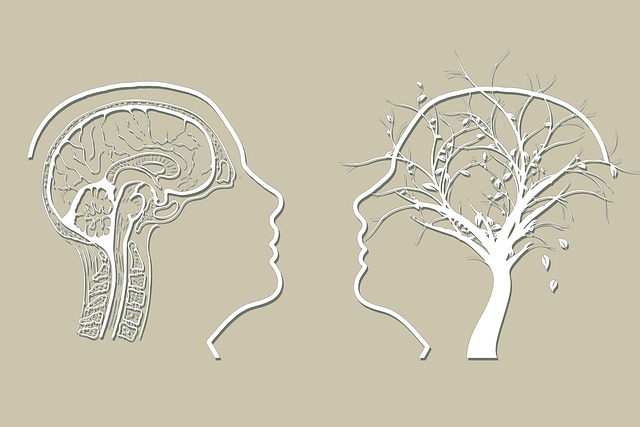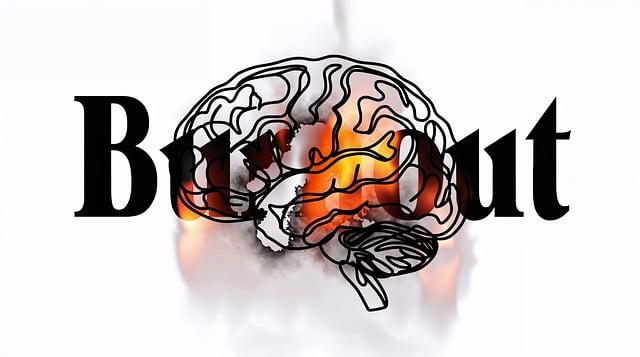Colorado Springs stands out as a leader in geriatric care, offering nuanced, holistic approaches that address the unique challenges of aging. Specialized therapy programs focus on history, culture, and social dynamics, targeting physical, cognitive, and emotional aspects. Key components include Mental Health Education, Social Skills Training, and early crisis detection through red flag identification. Evidence-based strategies, such as empathy building, self-awareness exercises, and anxiety relief practices, empower the elderly population, promoting long-term mental health sustenance. Colorado Springs' vibrant community and skilled healthcare professionals foster a supportive network for overall senior well-being.
In the complex landscape of geriatric care, crisis intervention plays a pivotal role in maintaining the well-being of elderly individuals. This article explores unique approaches to crisis intervention specifically tailored for the geriatric population. We delve into the resources and techniques offered by Colorado Springs Geriatrics Therapy, highlighting their expertise in managing crises effectively. Through identifying red flags and implementing evidence-based strategies, caregivers can navigate challenging situations, ensuring a supportive environment for seniors. Understanding these interventions is crucial for enhancing quality of life and fostering resilience among the aging community.
- Understanding Crisis Intervention in Geriatric Care: A Unique Approach
- Colorado Springs Geriatrics Therapy: An Overview of Resources and Techniques
- Identifying Red Flags: Early Detection for Effective Intervention
- Implementing Evidence-Based Strategies for Crisis Management
Understanding Crisis Intervention in Geriatric Care: A Unique Approach

Crisis intervention in geriatric care requires a nuanced approach, recognizing that older adults face unique challenges and experiences. In Colorado Springs, geriatrics therapy centers have adapted their strategies to cater to this specific demographic, focusing on the holistic well-being of seniors. Unlike general crisis interventions, which may treat symptoms without addressing underlying issues, geriatric care emphasizes understanding the individual’s history, cultural background, and social dynamics. This context-aware approach ensures that interventions are effective and tailored to each person’s needs.
The challenge lies in balancing physical, cognitive, and emotional aspects of aging. Mental Health Education Programs Design play a pivotal role here by teaching older adults coping mechanisms for stress and emotions, enhancing their Emotional Regulation abilities. Additionally, Social Skills Training becomes crucial in fostering connections and combating feelings of isolation, which can be prevalent during crises. By combining these strategies, Colorado Springs Geriatrics Therapy centers offer comprehensive support, not just for immediate crisis situations but also for long-term mental health sustenance among the elderly population.
Colorado Springs Geriatrics Therapy: An Overview of Resources and Techniques

Colorado Springs offers a wealth of resources for Geriatrics Therapy, catering to the unique needs of an aging population. The city’s vibrant community and dedicated healthcare professionals provide a supportive environment for older adults facing various challenges. One notable aspect is the abundance of specialized therapy programs designed to improve quality of life, enhance independence, and manage age-related conditions. These include physical therapy for mobility issues, cognitive rehabilitation to support dementia patients, and mental health services focusing on stress management and conflict resolution techniques.
Community outreach and public awareness campaigns play a pivotal role in promoting geriatric well-being. Organizations and local initiatives work towards educating the public about aging-related matters, fostering understanding, and reducing stigma. By combining these resources with advanced therapies, Colorado Springs creates an enabling environment for effective geriatric care. This holistic approach ensures that older adults receive comprehensive support, addressing physical, cognitive, and emotional needs, thereby improving their overall well-being.
Identifying Red Flags: Early Detection for Effective Intervention

In the realm of crisis intervention, particularly with Colorado Springs Geriatrics Therapy, early detection is paramount to effective treatment. Identifying red flags – signs or symptoms indicative of an individual’s mental health distress – plays a crucial role in ensuring timely and appropriate support. Mental health professionals must be adept at recognizing these subtleties, which can range from sudden changes in behavior and mood to physical manifestations like insomnia or appetite alterations. Regular risk assessments form the backbone of this process, enabling practitioners to gauge an individual’s vulnerability and implement targeted interventions.
Inner strength development is a key strategy within crisis intervention. By fostering resilience and coping mechanisms, individuals equipped with these tools can better navigate life’s challenges. Anxiety relief techniques, for instance, have proven effective in mitigating symptoms and promoting emotional stability. Integrating such approaches, coupled with continuous observation and re-evaluation, creates an environment conducive to healing, offering Colorado Springs Geriatrics Therapy clients the support they need to overcome crises and lead fulfilling lives.
Implementing Evidence-Based Strategies for Crisis Management

In the realm of crisis intervention, particularly within the context of Colorado Springs Geriatrics Therapy, evidence-based strategies prove indispensable. These methods, developed through rigorous research, offer a roadmap for effectively managing and mitigating crises in senior populations. By adopting such approaches, therapists can foster a sense of stability and well-being among their clients, ensuring that interventions are not merely reactive but proactive and tailored to individual needs.
One key strategy is the incorporation of Empathy Building Strategies, which enable therapists to connect deeply with clients, understanding their unique perspectives and fears. Coupled with Self-Awareness Exercises, these techniques help individuals process and express their emotions healthily. Additionally, practices aimed at Anxiety Relief are crucial in calming minds during crisis situations, allowing for clearer thinking and better decision-making. Such evidence-based interventions not only revolutionize crisis management but also underscore the importance of a holistic approach to geriatric therapy in vibrant communities like Colorado Springs.
In conclusion, effective crisis intervention in geriatric care requires a multifaceted approach. By understanding the unique needs of elderly individuals and utilizing evidence-based strategies, such as those offered by Colorado Springs Geriatrics Therapy, professionals can provide timely and tailored support. Early identification of red flags is key to preventing and managing crises, ensuring the well-being and quality of life for our aging population.














